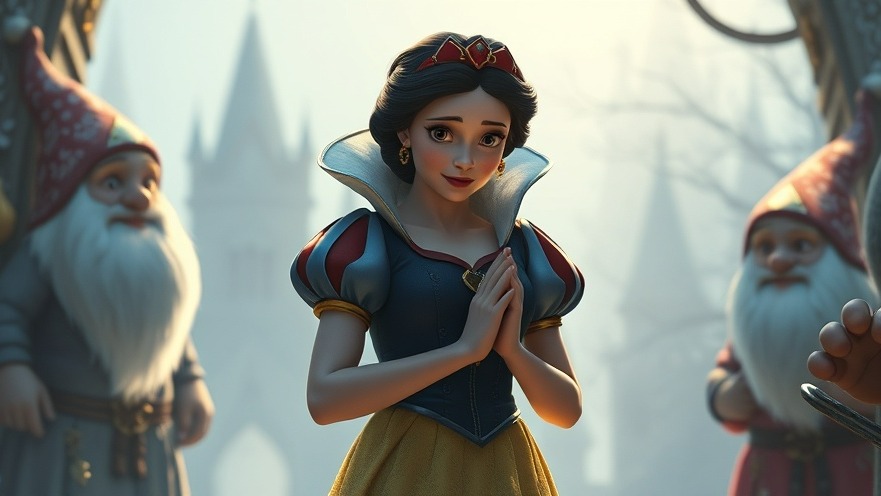
Disney's Snow White: A Cultural Renaissance or Regression?
The latest adaptation of Disney's classic Snow White has sparked debates about the value of reboots in today’s film landscape. With an infusion of modern narratives, filmmakers often grapple with translating these timeless tales to resonate with contemporary audiences. However, the new Snow White, as critics highlight, took a direction that many perceive as muddled and exhausting. Rather than revamping the story in a meaningful way, it complicates the beloved narrative while failing to deliver engaging performances from its lead actors, Rachel Zegler and Gal Gadot.
The Heroine’s Journey Reimagined
This new take on Snow White shifts the protagonist into a more independent figure, a departure from the traditional damsel in distress trope. The film introduces her not just as a victim but as an active participant in a Robin Hood-style resistance against the evil queen, with Zegler’s Snow White leading her own insurgency.
Yet, this narrative pivot raises questions about its execution. While the intention seems progressive, critics argue that it leaves viewers yearning for the original's simplicity and charm. The reinvented character, though equipped with agency, is often discussed in the context of arbitrary changes rather than tangible development, begging the question: Are we advocating for empowerment or just unnecessary complexity?
Mo-Cap Dwarves: A Missed Opportunity
Another contentious aspect is the treatment of the dwarves. In an attempt to diversify representation, the film opts for mo-cap animated figures rather than real actors. This decision sidesteps meaningful representation and further complicates the narrative by introducing a band of seven live-action bandits led by the new character, potentially detracting from the heart of the original story.
Could this have been the opportunity to showcase authentic portrayals of individuals with dwarfism? Critics argue the approach appears more tokenistic, ultimately failing to honor the original characters that fans cherish. The film's choices reflect a broader trend in Hollywood where the intention of inclusivity occasionally overshadows the execution.
The Role of Nostalgia in Film Adaptation
The original Snow White, released in 1937, holds a special place in film history as Disney's first animated feature. It was revolutionary for its time, drawing on familiar fairy tale motifs to craft a narrative that resonated with audiences. New adaptations face the dual challenge of appealing to nostalgia while also integrating a modern perspective.
For fans, the freshness of the live-action remake can be a double-edged sword. While inviting a new audience to experience a cherished story, the risk of alienating original fans is palpable. Many who attempt to revive classic tales find themselves at an impasse—honoring legacy or innovating for modern sensibilities?
How Will This Affect Future Projects?
The reception of Disney’s Snow White raises profound implications for future adaptations. As filmmakers grapple with diversity and representation, the new version’s lackluster execution demonstrates that merely altering storylines does not guarantee a successful result. Instead, it highlights the necessity for thoughtful storytelling that bridges the past with contemporary themes while addressing inclusivity authentically.
Final Thoughts: Lessons in Storytelling
While it is vital for cinematic narratives to evolve, the key takeaway from this film may lie in the importance of maintaining a story’s core essence—the themes of love, bravery, and self-discovery that made the original so timeless. A successful adaptation should resonate with both old and new audiences and rekindle the magic that stories are meant to evoke.
What can be gleaned from this analysis is an opportunity for critical reflection: How can future adaptations learn from the pitfalls of this rendition? As we navigate cultural storytelling in a globalized world, the challenge remains to discern where innovation enhances a tale rather than distracts from its heart. Perhaps the moral of this reboot rests in understanding that sometimes, less is more.
 Add Row
Add Row  Add
Add 




Write A Comment